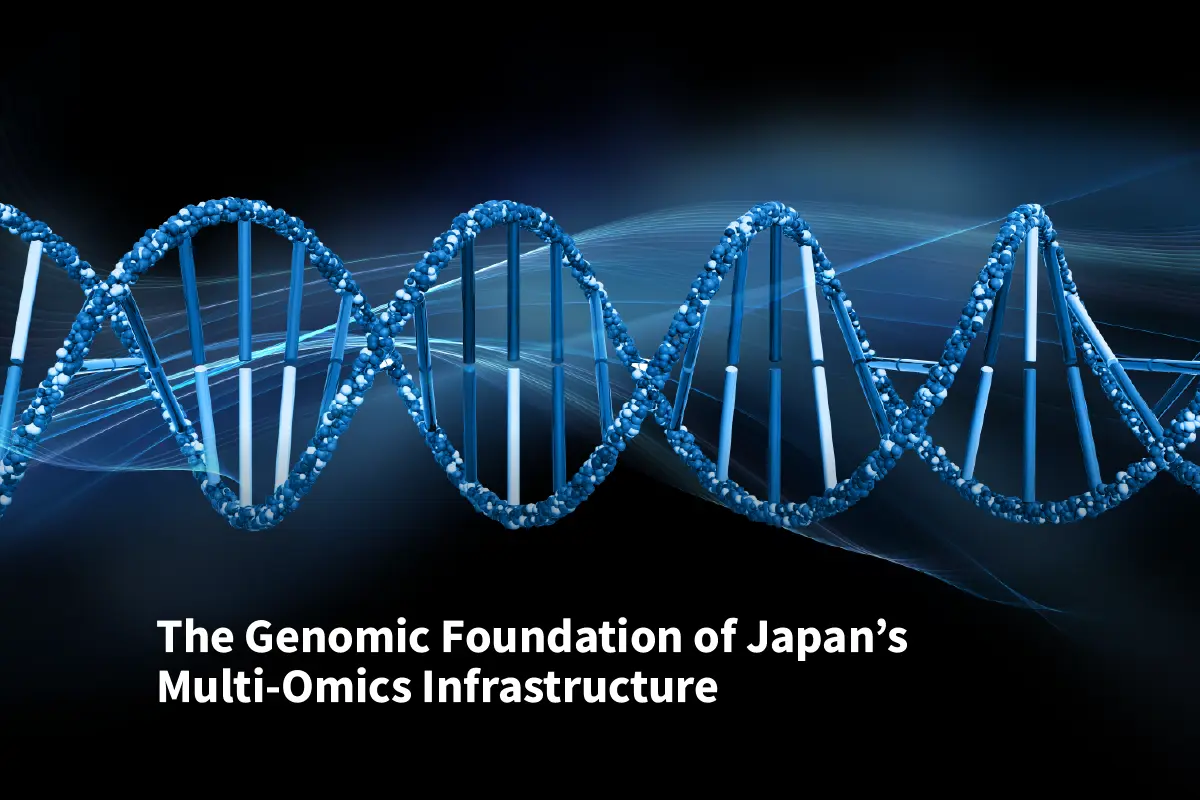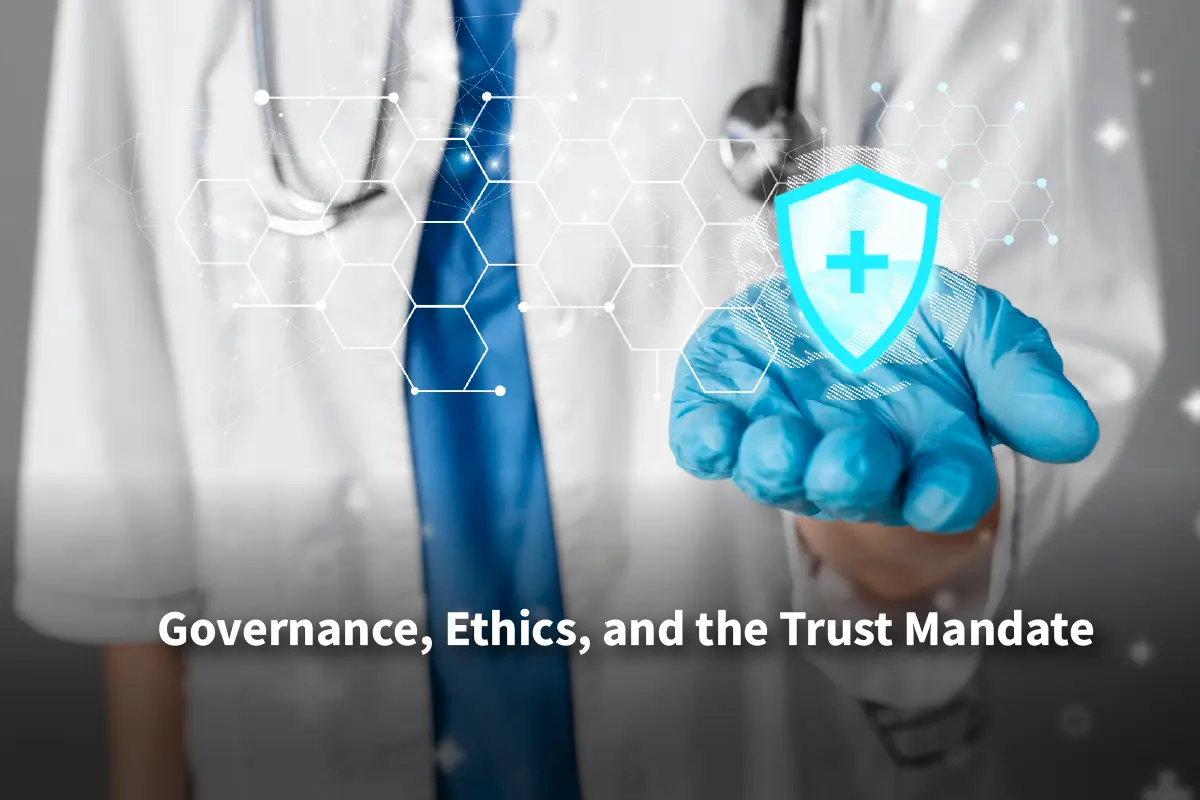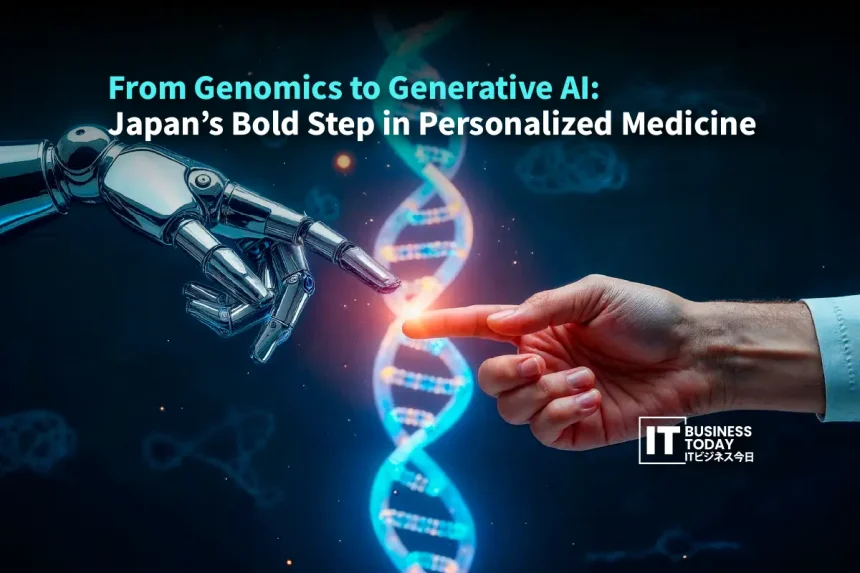地球はもはやすべての人々を同じように扱うことはできません。特に高齢化が進む日本では、よりスマートで正確な医療が求められています。個別化医療は、患者一人ひとりの遺伝的・生物学的特徴に合わせて薬を調整する万能薬です。
日本は、この変革に対応するのに非常に有利な立場にあります。日本では、大規模な国立ゲノム・データベースやジェネレーティブAIの習熟度の向上により、生物学と計算を融合させた世界でも稀な研究が進められています。AMEDはこの推進の中心にあり、医薬品開発から再生医療まで、複数の研究分野を融合させたプロジェクトに資金を提供しています。2025年、AMEDのプログラムには以下のような大規模なプロジェクトが含まれています。 SATREPSまた、プロテオスタシスなどのトピックに関するシンポジウムや、研究室での発見を実社会での応用につなげるための省庁横断的な取り組みも行っています。
この記事では、日本のゲノムインフラからAI主導のソリューションまでの道のりをたどり、臨床での成功例を探り、この革命を信頼できるものにするガバナンスと倫理の枠組みを検討します。
こちらもお読みください: ITリーダーはAIの自動化と労働力の再教育のどちらに投資すべきか
日本ゲノム振興財団のマルチオミックス基盤

個別化医療の推進は、日本の医療イノベーションのバックボーンである、深く質の高いゲノムデータから始まります。その中心にあるのが、マルチオミクス研究の国宝であるバイオバンク・ジャパンです。2025年7月現在、BBJには約27万人の患者のDNAサンプルが保管されており、その範囲は 51の病気.その規模は驚異的で、約80万本のDNAチューブと170万本の血清チューブが研究用に慎重に目録化されています。バイオバンクは品質管理と情報セキュリティの両面でISO認証を取得しており、すべてのサンプルの信頼性と保護が保証されています。
真のパワーはマルチオミクスデータの豊富さから生まれます。BBJはDNAサンプルを保管するだけでなく、16,000人の患者の全ゲノムシーケンスを行い、270,000人全員のSNPデータを提供しています。このような徹底した研究により、研究者だけでなく、ジェネレイティブAIモデルも、従来の方法よりも迅速なだけでなく、より効率的な方法で、パターンを見つけ出し、疾患リスクを推定し、潜在的な介入策を導き出すことが可能になります。CHEK2と23のがん種との関連は、現在の疾患と遺伝子との関連がすでに臨床研究に影響を与えていることを示す定期的なアップデートのひとつにすぎません。
ゲノムの分野では、膨大な量の データ を実用的な洞察に変換することは、長年にわたる最大の課題でした。多くの遺伝子情報が利用可能でしたが、データの分析と解釈のためのツールの使用は十分に開発されていなかったため、その潜在的な可能性の大部分は未開発のままでした。今日、マルチオミクスの統合とAIを活用した解析がそのギャップを埋めつつあります。日本は単にデータを収集するだけでなく、それを個別化ヘルスケアのためのダイナミックなエンジンに変えようとしているのです。この基盤があれば、臨床医や研究者は、複雑なゲノム情報を、真にケアを変える可能性を持つ、正確で患者に特化した介入に変換することができます。
計算触媒としての生成AI
ジェネレーティブAIが個別化医療を変える従来の機械学習とは対照的に、ジェネレーティブAIは予測や分類だけに限定されず、むしろ新しい解決策を考え出すことができます。生物学の分野では、これは薬剤の設計、治療計画、あるいは個別の患者への介入につながります。このような発見は、特にデータソースがゲノム、タンパク質、代謝物のような複雑なものである場合、旧来の手法では困難です。
日本にはこれを実現する技術があります。産総研のスーパーコンピューター「ABCI 3.0」は2025年1月に本格稼働。ABCI3.0は6,128 エヌビディア H200 GPUを搭載し、半分の精度で6.22エクサフロップスを達成。ハードディスク・ドライブの容量と読取り/書込み速度は、前モデルの2倍です。AIに関連する膨大なコンピューティング・パワーは、膨大なデータセットをわずか数秒で処理するのに役立ち、それによって学術的に有用な生データから洞察を得ることができます。
主な用途のひとつは創薬です。AIは患者の変異プロファイルを調べ、低分子であれ生物製剤であれ、最適な標的を見つけるのに役立ちます。アステラス製薬はこれを実践しています。三菱総合研究所との製薬スタートアップ支援の提携は2025年に実現しました。一例として、Future Innovator Prizeは、DeepSeq.AIやSerna Bioのような企業が、研究所へのアクセス、指導、AIベースのコンセプトを実生活に変えるための支援を得ることを可能にしました。 アプリケーション.
もう一つの分野は、臨床意思決定支援です。マルチオミクスデータで学習したAIは、複雑な患者記録をほぼ瞬時に読み取り、可能性の高い治療方針を提案することができます。医師はより迅速な洞察を得ることができ、患者はより正確な治療を受けることができます。
ジェネレーティブAI はもう単なる理論ではありません。強力なコンピュート、豊富なデータ、そして産業界とのパートナーシップにより、日本は臨床医がより賢く、患者中心の医療を提供できるような実際のツールに変えようとしています。
臨床翻訳 実世界での経験と精度
個別化医療が重要なのは、それが臨床で機能しているときだけです。薬理ゲノミクス。AIは患者のゲノムを調べ、ある薬にどのように反応するかを予測します。 医学.これは副作用の軽減につながり、より安全な治療となります。医師は、何が起こるかを待つのではなく、事前に投与量を変更することができます。このような反応的処方から積極的処方への移行は、実際、医療システムの提供に大きな変化をもたらしています。
AIはがん治療に大きな変化をもたらしています。腫瘍には、最適な治療法を示す遺伝子情報があります。AIはこの複雑なデータを非常に迅速に処理し、患者を適切な免疫療法や標的療法とペアリングすることができます。日本製の治療法を努力に対応させるとともに、患者の遺伝子プロファイルに正確に合わせた選択肢を提供します。
しかし、AIは魔法ではありません。医師はAIを信頼する必要があります。説明可能なAI(XAI)は、臨床医が二の足を踏むことなく、十分な情報に基づいた意思決定ができるように、システムがどのように結論に至るかを示します。トレーニングプログラムは、医師がAIに取って代わられたと感じるのではなく、AIと共に働くことを支援しています。
薬理ゲノミクス、AIによるがん治療、そして信頼できる人間とAIのインターフェイスを組み合わせることで、日本はデータを実際に患者に合ったケアに変えようとしています。個別化医療はもはや約束事ではありません。一般的な患者ではなく、その人に合った治療を受けることができるようになるのです。
ガバナンス、倫理、信託の使命

個別化医療はデータやAIだけの問題ではありません。信頼の問題でもあります。日本では、患者情報の安全性を確保するため、強力なセーフガードを構築しています。ヨーロッパのGDPRに似ていますが、地域のニーズに合わせた厳格なデータ保護の枠組みが、ゲノムデータやAIで処理されたデータを保護しています。これにより、機密性の高い医療情報が悪用されることはありません。
規制当局もまた、テクノロジーに歩調を合わせるために適応しています。医薬品医療機器総合機構(PMDA)は、AIを活用した診断や、時間の経過とともに学習・改善する「生きた」アルゴリズムに対応するため、承認経路の近代化を進めています。日本のアプローチは柔軟で、安全性を前面に出しながらイノベーションを促進することを目指しています。
経済産業省も重要な役割を果たしています。同社のイニシアチブである「ジェネレーティブAIアクセラレーター・チャレンジ」は、以下のように知られています。 ジェニアック2025アクションプランは、この流れを引き継ぐもので、ジェネレーティブAI、量子コンピューティング、戦略的技術領域などの分野を対象としています。2025年アクションプラン」は、この流れを引き継ぐもので、ジェネレーティブAI、量子コンピューティング、戦略的技術領域の分野を指摘しています。また、企業が責任を持ってAIを導入するための「企業向けAIガイドラインVer.これらの施策は、イノベーションと統制を同時に促進し、AIを活用した個別化医療を、患者にとってより安全で、より効果的で、より信頼できるものにするものです。
グローバル・リーダーへの道
個別化医療を実践する日本。医師は問題を早期に発見しています。一人一人に合うように治療法を調整し、可能な限り当て推量を省いているのです。これは遠い未来のことではありません。今まさにクリニックで起こっていることなのです。がん治療、薬物反応、そして複雑な 健康データ は、AIと豊富なゲノム情報のおかげで、よりスマートかつ迅速に処理されています。日本のアプローチは、技術、倫理、そして実世界での応用をミックスしたもので、他国が学ぶべきものです。ケアはより安全で、より正確で、個人のために構築されています。世界が注目するスタンダードとなる大胆な動きです。








